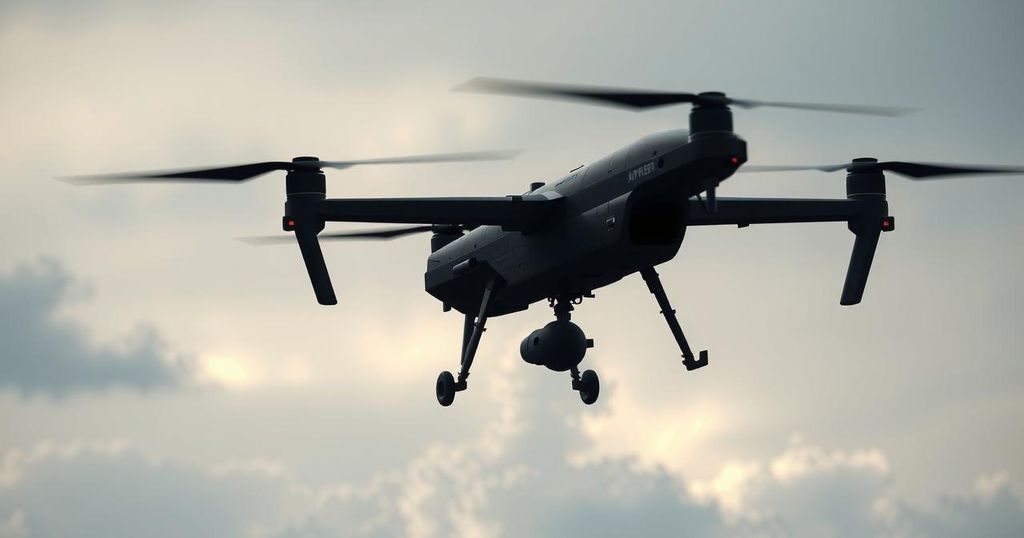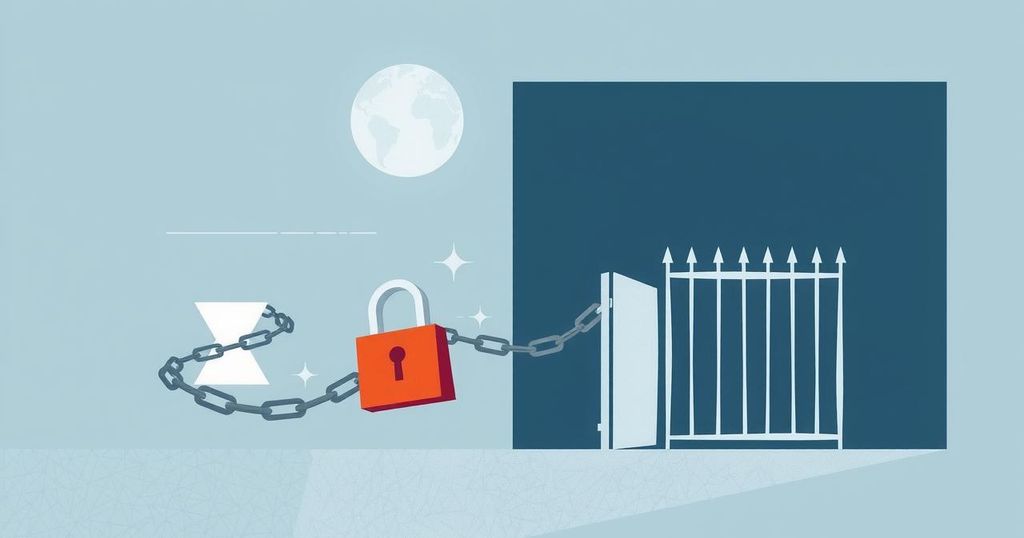Kurdish Official Refutes Drone Claims Amid Turkish Propaganda
A Kurdish military official negated accusations that Kurdish forces acquired drones from Iran, labeling such claims as Turkish propaganda. He emphasized the Kurdish region’s autonomy and safety while condemning Turkey’s historical oppression of Kurds. The Syrian Democratic Forces also publicly rejected the allegations, asserting their self-sufficiency. Amid regional instability, the official expressed hope for international support and cooperation, particularly with Israel.
A Kurdish military official denied allegations made by Turkey’s Yeni Safak newspaper, asserting that Kurdish forces did not acquire drones from Iran. During a video call with The Jerusalem Post, the official characterized the claims as Turkish propaganda, stating, “We did not acquire any drone capabilities from the Iranians. Our drone capabilities are all made in-house, led by our fighters.” He highlighted the newspaper’s loyalty to President Erdogan and accused it of distorting the image of the Kurds.
The official described the Kurdish-controlled regions in Syria as safer than other areas, stating that they control 30-35% of the territory. He contended that their existence as a self-ruling region contradicts Erdogan’s expansionist ambitions, which aim to remodel the Middle East along Ottoman lines. He reiterated that despite ongoing attacks from Turkey, Kurdish forces have successfully defended their territory.
In response to the allegations, the Syrian Democratic Forces (SDF) released a statement refuting the claims from Turkish media, declaring that their drone technology is independently developed. This development underscores the assertion that the allegations serve as a strategy to undermine Kurdish autonomy while promoting Turkish governmental narratives of control and hostility towards Kurdish demographics.
Historically, tensions between the Turkish state and the Kurdish population have been intense, especially concerning ethnic relations and Kurdish rights. The Kurds represent approximately 15-20% of Turkey’s population and have been subjected to assaults against their cultural and political expressions, often labeled as terrorist affiliations. The ongoing military actions by Turkey against Kurdish positions in Syria compound fears of further ethnic oppression amid political instability.
The Kurdish official expressed apprehension about the current administration’s connections to Turkey, highlighting the irony that Kurds are an integral part of Turkish society despite historical conflicts. “The current government in Damascus does not control the entirety of Syria and faces challenges, leaving a power vacuum that extremist organizations could exploit,” he commented while advocating for equitable rights in Syria.
On relations with Israel, albeit anonymously, the official shared admiration for the Jewish community’s historical significance. He articulated a desire for stronger cooperation, noting, “It is an honor to appear in your media.. The State of Israel is a powerful nation capable of fostering peace. We hope Israel can play a pivotal role in combating terror and achieving lasting stability in the region.”
The fraught relationship between Kurdish forces and the Turkish government has historically revolved around issues of autonomy, ethnic identity, and territorial control. In Syria, the Kurds hold a significant land area, governed independently, which clashes with Turkey’s territorial ambitions and narrative of national security against perceived terrorist threats. As Kurdish forces have developed their capabilities, Turkey’s response has been aggressive, employing both military force and media propaganda to undermine Kurdish legitimacy.
In summary, Kurdish military officials categorically rejected claims of drone acquisition from Iran, underscoring their self-reliance in military capabilities. They articulated the ongoing struggles against Turkish aggression and the complex historical tensions between Turkey and the Kurdish population. The Kurdish leaders’ hopeful stance toward peace and cooperation with other nations, especially Israel, reflects their aspiration for a stable and equitable future in the region.
Original Source: www.jpost.com




Post Comment